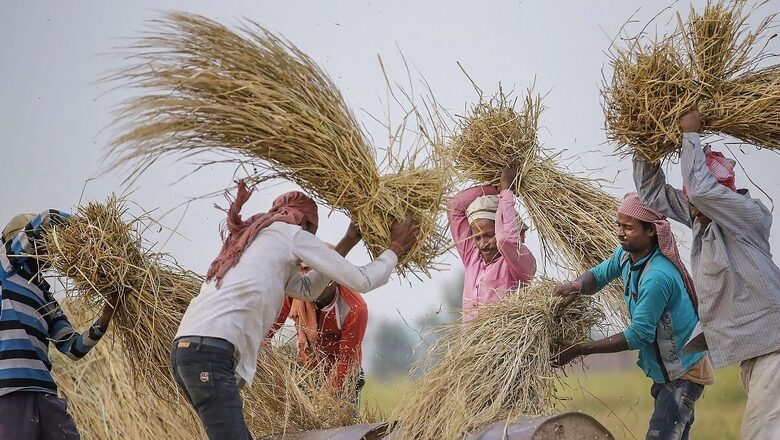
views
Six years since the launch of PM-AASHA — a government scheme aimed at providing fair prices and better returns to farmers and to regulate price fluctuations in the market — the programme has now been extended, with the government recently approving an outlay of Rs 35,000 crore, signalling a firm commitment to securing farmers’ incomes amidst fluctuating market conditions.
Under the Pradhan Mantri Annadata Aay Sanrakshan Abhiyan, MSP procurement is complemented by Price Deficiency Payment (PDP) and Private Procurement Stockist Scheme (PPSS), providing a safety net for farmers. The scheme covers a wider range of crops than just wheat and rice and hence, incentivising diversification, giving farmers an array of options to cultivate crops suited to their local conditions.
The programme has had a tangible impact. According to government data, there has been a marked increase in the procurement of crops like pulses, oilseeds, and cotton. The ultimate goal is to help farmers keep a secure income while also ensuring food security and stable market conditions for consumers.
Strengthening the MSP System
The Minimum Support Price (MSP) system has been a lifeline for millions of farmers, ensuring that they are shielded from sharp price drops, especially in the case of bumper crops or low demand. In recent years, the government has consistently raised MSP for various crops, giving farmers a better safety cushion.
The Modi government has consistently raised MSPs across various crops, reinforcing its commitment to farmers’ welfare. For instance, the MSP for paddy has increased from Rs 1,310 per quintal in 2013-14 to Rs 2,040 per quintal in 2023-24, while the MSP for wheat rose from Rs 1,400 per quintal to Rs 2,125 per quintal in the same period. Further, MSP for pulses and oilseeds has seen substantial increases, promoting among farmers diversification away from water-intensive crops like rice.
Additionally, the procurement process has become more streamlined with the digital integration of farmers into e-markets, ensuring timely payments. Direct Benefit Transfers (DBT) have helped cut down middlemen, ensuring that farmers receive payments directly into their accounts without leakage or delays.
Addressing the Challenges
While these measures have been commendable, certain challenges remain. One key issue is that MSP primarily benefits farmers in regions like Punjab, Haryana, and western Uttar Pradesh, where procurement mechanisms are well-established. Many farmers, particularly in eastern and southern states, still struggle to access MSP benefits due to weak infrastructure and limited procurement centres.
The involvement of the private sector in MSP-based procurement has also been done away with. While private procurement was initially part of PM-AASHA, new changes are aimed at keeping MSP procurement within the public domain. This adds additional responsibility on the Centre. While keeping MSP in the public domain can ensure more accountability, it may also limit exposure to innovative private solutions, especially when it comes to large-scale operations for diverse crops across states.
A Balanced Perspective
PM-AASHA has made an undeniably potent impact enhancing farmers’ incomes and combating food inflation. The scheme provides much-needed security to farmers, helping them weather the uncertainties of the agricultural market. They also align with the broader goal of achieving sustainable and profitable farming in India.
The focus now should be on ensuring that these benefits are more evenly distributed across states and crops. Expanding procurement infrastructure in under-served regions, coupled with robust monitoring to ensure timely payments, will be crucial for the MSP system to fully deliver on its promise.




















Comments
0 comment